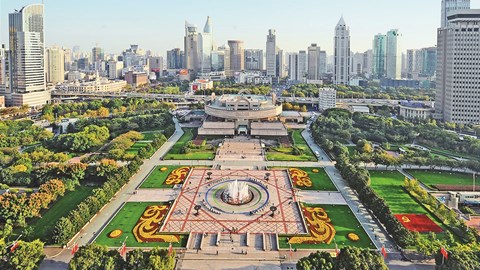Unhappy grandpas bid sad farewell to a favorite form of getting around
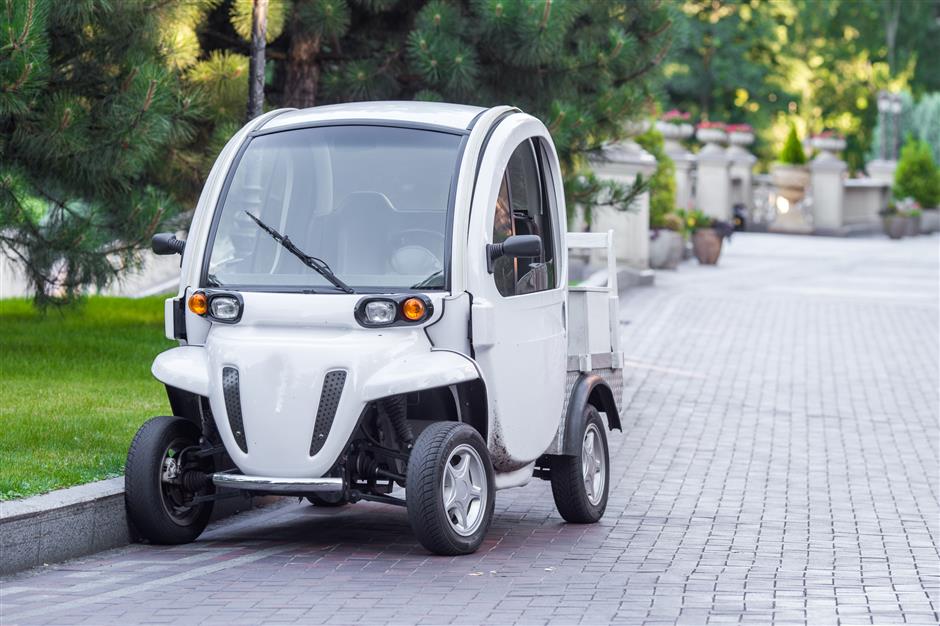
A four-wheeled electric vehicle parks in a Beijing neighborhood.
The streets of Beijing are slowly losing a familiar sight – mini four-wheel electric vehicles called laotoule – and the elderly who have embraced them are losing a favorite form of transport.
"It's like losing a part of our lives," a 71-year-old Beijing resident surnamed Li told Shangyou News, reflecting the sentiment of many seniors in the wake of the city's ban on the popular vehicles.
Laotoule, or "happy grandpas," became such a hit among the elderly in the past decade because the vehicles were a cheap, convenient way to navigate the sprawling city for a generation often beset by limited physical mobility.
"They gave us a sense of freedom," said Li.
On the Chinese online retail platform Tmall, "happy grandpas" range in prices from 2,000 yuan (US$281) to 20,000 yuan for high-end versions resembling Land Rovers or Porches.
But the "happy grandpas," which were operating with minimal traffic regulation, didn't always have a happy safety record.
"They were never meant for busy city traffic," said legal expert Yuan Sanhui, who noted the vehicles' common lack of seatbelts and proper lighting.
The death of a young teacher struck by one of the vehicles in the central province of Henan in November was the final straw in official tolerance.
The incident, among others, prompted Beijing authorities to announce a blanket ban on laotoule, citing safety concerns. Other domestic cities have followed suit.
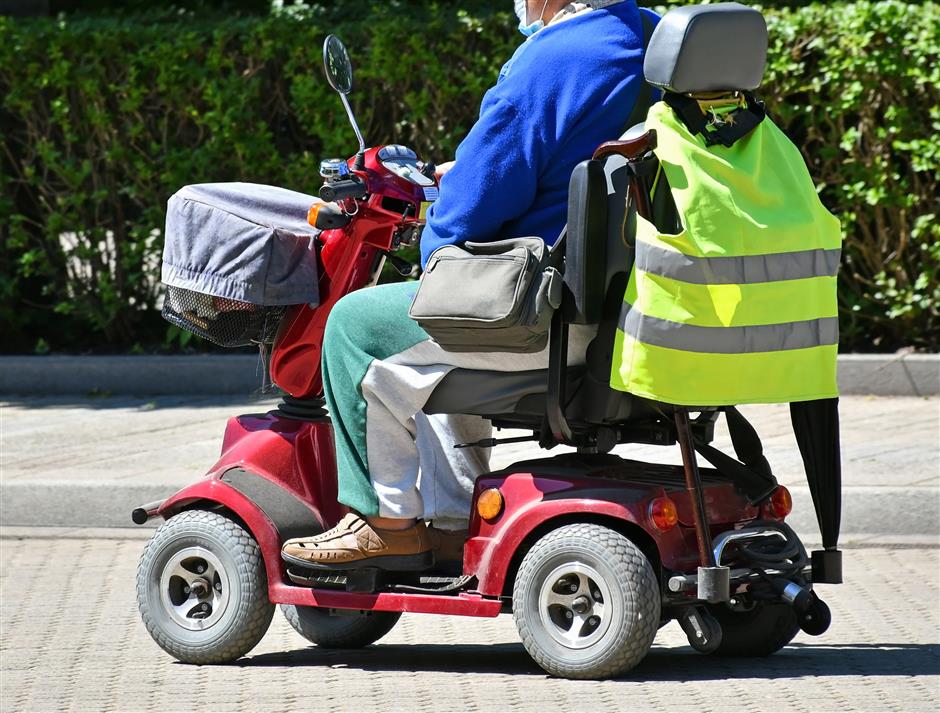
An elderly man on a four-wheeled laotoule
A recent poll showed a divided public, with 56.5 percent of respondents supporting the ban.
"The streets will feel safer without these laotoule vehicles," Zhang Lin, a mother of two, commented on the social media platform Weibo.
Many seniors like Li are devastated by the ban on what they considered a lifeline to the world around them.
"I used it for everything -- grocery shopping, visiting friends," Li said.
In fact, he used his laotoule for five years to ferry his young grandson the 15 kilometers to school every day. He bought the vehicle in 2018 for just over 20,000 yuan. It reached top speeds of 40-50 kilometers per hour.
"They say it's illegal, but I don't see how," Li argued. "I've been driving it for years without incident. It's slow-moving. How dangerous can that be? It's certainly safer than a motorcycle."
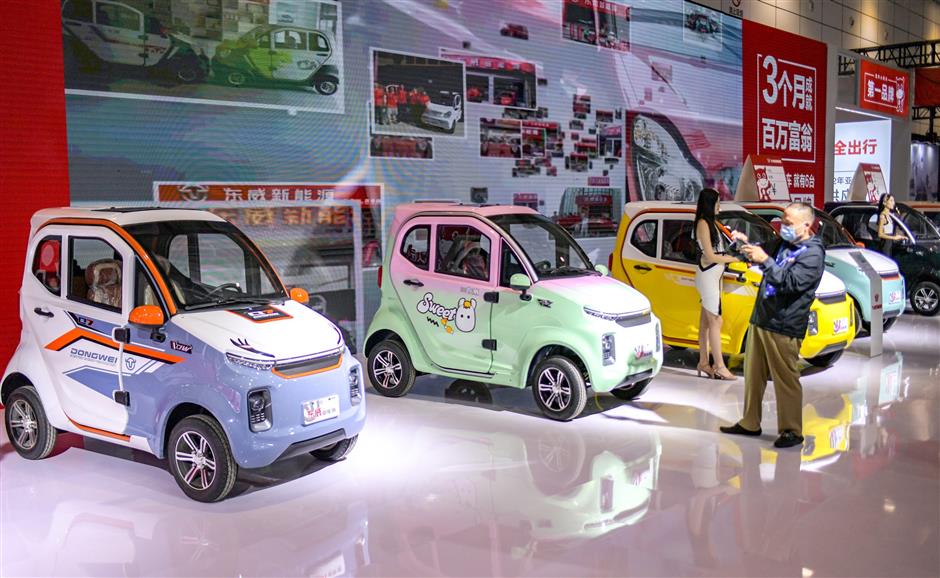
A customer takes photos of laotoule vehicles at an exhibition in Shandong Province.
The market for "happy grandpas" has grown by over half annually since 2013, reaching a production volume of one million units per year, according to the Shandong Province Automobile Industry Association.
In 2022, Beijing's Traffic Management Bureau reported 131 accidents involving laotoule, resulting in 138 deaths. Last year, 71 percent of the victims were the drivers themselves, who were mainly 60 years or older. Some 85 percent of them lacked a driver's license or any formal road training.
Liu Jian, deputy squad leader of the Vehicle Management Department of Beijing's Public Security Bureau, said most laotoule lack a differential, making them prone to tipping over during turns.
Additionally, their plastic plexiglass windshields lacks the strength and toughness of standard automotive tempered glass.
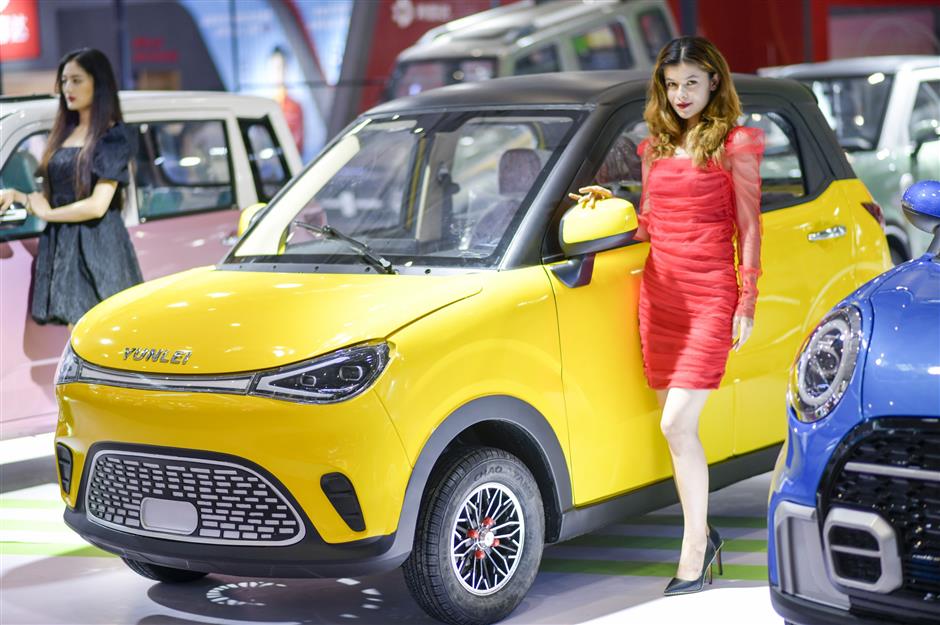
A laotoule vehicle at an auto exhibition in Shandong.
Ahead of the ban, many elderly drivers in Beijing began to part with their beloved laotoule, either selling them at reduced prices or transporting them back to their hometowns.
The government offered subsidies up to 1,500 yuan for early disposal of the vehicles.
"We had no choice but to adapt," said Li, whose grandson is now taken to school in his parents' car.
The ban on laotoule raises questions about how to find alternative transport for the elderly. Proposals include subsidized taxi services and expanded public transportation routes.
"It's about balancing safety with mobility needs," Professor Song Xiangqing from Beijing Normal University told Shangyou News.
Beijing is replacing electric tricycles used in postal delivery, landscaping and sanitation work with legally compliant models, registered with license plates. Some former laotoule users, including Li, said they hope some similar form of legally registered, affordable and slow three-wheel vehicles could be a viable alternative.
Legal three-wheelers, classified as regular tricycles, are restricted from operating inside the Sixth Ring Road in the capital. Elderly living outside this area, who are 70 years or younger, can obtain a D-class driving licenses for these vehicles.
"Future electric vehicles should meet lower mileage needs," said Cui Dongshu, secretary-general of the China Passenger Car Association. "A specialized license for micro electric vehicles could enhance the safety awareness of elderly drivers."

